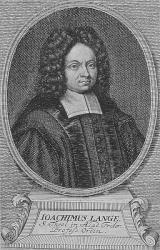
1783 - 1861 Person Name: Mrs. Phoebe H. Brown, 1763-1861 Hymnal Number: 944 Author of "How sweet the melting lay" in The Clifton Chapel Collection of "Psalms, Hymns, and Spiritual Songs" Brown, Phoebe, née Hinsdale. A member of the Congregational body, born at Canaan, Columbia County, New York, May 1, 1783, she was left an orphan when two years old. At nine she fell into the hands of a relative who kept a county gaol. These, says her son, "were years of intense and cruel suffering. The tale of her early life which she has left her children is a narrative of such deprivations, cruel treatment, and toil, as it breaks my heart to read." Escaping from this bondage at 18, she was sought by kind people, and sent for three months to a common school at Claverack, N.Y., where she learned to write, and made profession of faith in Christ. In 1805 she was married to Timothy H. Brown, a painter, and subsequently lived at East Windsor and Ellington, Connecticut, Monison, Mass., and at Marshall, Henry County, Illinois. She died at the last-named place, Oct 10, 1861. Most of her hymns were written at Monison, Mass. Through a life of poverty and trial she was "a most devoted mother, wife, and Christian." Her son, the Rev. S. R. Brown, D.D. became the first American Missionary to Japan, and two of her grandchildren are now in the same mission. In addition to her hymns, two or more volumes of prose by her have been published. Her Autobiography and Poems were being prepared for publication, when the editor died, and they are yet to appear. Despite all her disadvantages, Mrs. Brown's talents and work are superior to those of any other early female hymnist of America. It is hoped that her manuscript may some day be competently examined, and selected portions from them be published. Four of her hymns appeared in Nettleton's Village Hymns, 1824, with the signature "B."
1. As once the Saviour took His seat. Penitence.
2. Go, messenger of love, and bear. Missions.
3. I love to steal awhile away. Retirement.
4. Welcome, ye hopeful heirs of heaven. Young Converts.
Of these No. 2 is a Missionary hymn, written in 1817, but first published in the Village Hymns, 1824; No. 3 was written in 1818, and few hymns have a more pathetic history. It is this:—
Mrs. Brown was living at Ellington with "four little children, in a small unfinished house, a sick sister in the only finished room, and not a place above or below where I could retire for devotion." Not far off stood the finest house in the neighbourhood, with a large garden. To-wards this the poor woman used to bend her steps at dusk, loving, as she writes, “to smell the fragrance of fruits and flowers, though I could not see them," and commune with Nature and God. This she did, never dreaming that she was intruding, her habits watched, or her motives misconstrued, till one day the lady of the mansion turned rudely upon her with "Mrs. Brown, why do you come up at evening so near our house, and then go back without coming in? If you want anything, why don't you come in and ask for it?" Mrs. B. adds, "There was something in her manner more than her words, that grieved me. I went home, and that evening was left alone. After my children were all in bed, except my baby, I sat down in the kitchen with my child in my arms, when the grief of my heart burst forth in a flood of tears. I took pen and paper, and gave vent to my oppressed heart."
The Poem then written is headed "An Apology for my Twilight Rambles, addressed to a Lady, Aug. 1818.” The original has nine stanzas, the second beginning “I love to steal awhile away.” Years after, when Nettleton was seeking original matter for his Village Hymns (1824), this piece was abridged and altered into the present familiar form, either by Mrs. Brown herself, her pastor (Mr. Hyde), or Nettleton. Its popularity was great from the first. In 1853 it was included in the Leeds Hymn Book, and thus became known to English collections. It is found in Lyra Sacra Americana, p. 29.
In 1819 Mrs. Brown wrote two hymns which were strangely overlooked by Nettleton, and did not appear till 1831 in Hastings's Spiritual Songs. These are:—
5. How sweet the melting lay. Morning.
6. 0 Lord, Thy work revive. For a Revival. Both are found in Lyra Sacra Americana, pp. 28-30.
No. 6 was altered by the author for Nason's Congregational Hymn Book, 1857. This, according to Nason, is her authorized text. It is widely used in America, and is also found in a few English collections, including Reed's Hymn Book and the New Congregational Hymn Book, and sometimes is attributed in error to Hastings.
7. Great God, we would to Thee make known. This appeared in the Mother's Hymn Book, 1834.
8. We come, 0 Lord, before Thy throne. For Sailors.
9. Grant the abundance of the sea. For Sailors. Two hymns for sailors, which appeared in Linsley and Davis's Select Hymns, 1836.
10. Assembled at [round] Thine altar, Lord. Holy Communion. This also appeared in the Select Hymns, 1836, and was altered for Nason's Congregational Hymn Book, 1857. It is a good hymn, and deserves wider adoption.
11. Jesus, this mid-day hour. Noon. "Written by special request for the Fulton Street [Noon] Prayer Meeting," about 1857.
In addition to the foregoing there are four hymns by her in Parish Hymns (Phila.), 1843, to which they were contributed; and there may be many others in various collections which are uncredited. [Rev. F. M. Bird, M.A.]
-- John Julian, Dictionary of Hymnology (1907)
P. H. Brown


 My Starred Hymns
My Starred Hymns





